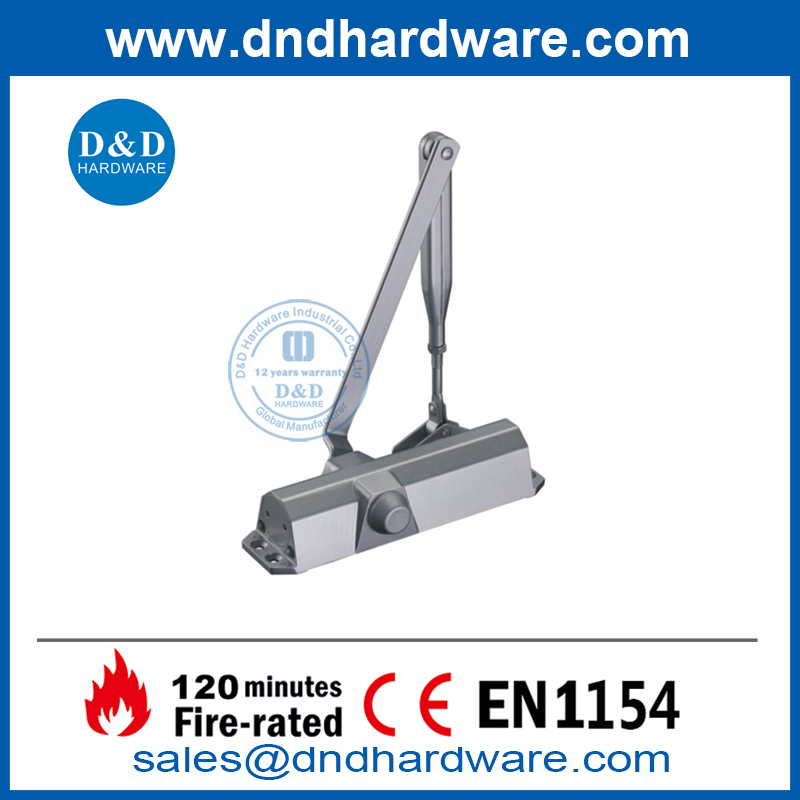Views: 0 Author: Site Editor Publish Time: 2024-05-06 Origin: Site

When it comes to ensuring the functionality and safety of doors in commercial or residential buildings, door closers play a pivotal role. These devices not only control the closing speed but also significantly contribute to the security and energy efficiency of a building. Among the various types available, hydraulic and pneumatic door closers are the most prevalent, each with its unique mechanisms and benefits. In this article, we delve into whether a hydraulic door closer is superior to its pneumatic counterpart.
Door closers are critical components that ensure doors close automatically after they have been opened either manually or automatically. This feature is essential for controlling access, maintaining building security, preserving indoor climate conditions, and ensuring fire safety by preventing the spread of smoke and flames during emergencies. The choice between different types of door closers can impact their effectiveness in various environments.
Hydraulic door closers operate using fluid-filled chambers to control the speed at which a door closes. The core mechanism involves a piston inside a cylinder filled with hydraulic oil; as the door opens, the piston moves and compresses the oil, which then controls the closing mechanism through controlled release.
The primary advantage of hydraulic systems is their smooth operation and adjustable closing speed, which can be finely tuned according to specific needs. This makes them particularly suitable for high-traffic areas where both durability and quiet operation are required. Additionally, hydraulic door closers are known for their longevity and robust performance under varying environmental conditions.
While both systems serve similar functions, there are distinct differences that might make one more suitable than the other depending on specific requirements:
Mechanism: Pneumatic door closers use air pressure to control the closing action. They typically involve an air-filled cylinder with a piston that compresses this air as the door opens.
Cost-effectiveness: Generally, pneumatic closers are less expensive than hydraulic models, making them a budget-friendly option for low-to-moderate traffic settings.
Installation Ease: Pneumatic systems tend to be easier to install due to their simpler design.
Durability: Hydraulic models usually offer better durability compared to pneumatic ones because they handle changes in temperature better without affecting performance.
Adjustability: One significant advantage of hydraulic systems is their adjustability; users can often set both swing speed (the time it takes from opening until just before closing) as well as latching speed (how quickly it secures into place).
In conclusion, while both types have their merits, hydraulic door closers generally provide greater reliability especially in environments where precision, longevity, or heavy usage plays a crucial role in daily operations. Whether you opt for a hydraulic or pneumatic model will largely depend on your specific needs related to installation complexity, frequency of use, environmental factors like temperature fluctuations or exposure elements such as dust or moisture—all crucial considerations when choosing an appropriate closer for your doors.